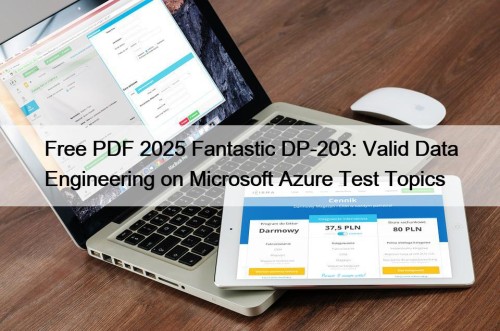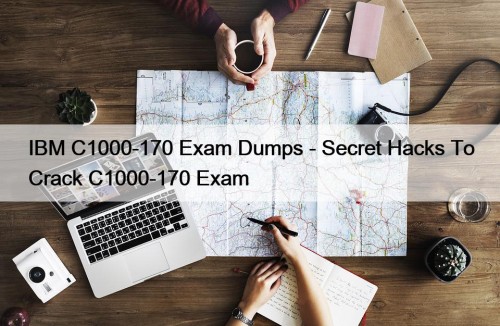Most Popular
 Free PDF 2025 Fantastic DP-203: Valid Data Engineering on Microsoft Azure Test Topics
Free PDF 2025 Fantastic DP-203: Valid Data Engineering on Microsoft Azure Test Topics
What's more, part of that BraindumpsVCE DP-203 dumps now are ...
 IBM C1000-170 Exam Dumps - Secret Hacks To Crack C1000-170 Exam
IBM C1000-170 Exam Dumps - Secret Hacks To Crack C1000-170 Exam
Our C1000-170 exam braindump is revised and updated according to ...
 Exam GB0-382 Course & GB0-382 Upgrade Dumps
Exam GB0-382 Course & GB0-382 Upgrade Dumps
H3C GB0-382 practice test has real H3CSE-RS-RT (GB0-382) exam questions. ...



100% Pass Authoritative Linux Foundation - CKS Latest Version

P.S. Free & New CKS dumps are available on Google Drive shared by TrainingDumps: https://drive.google.com/open?id=1nkyTP6twvEJ6xsFoF6Fl7C3s7eWDTO6M
If you want to pass the exam quickly, CKS prep guide is your best choice. We know that many users do not have a large amount of time to learn. In response to this, we have scientifically set the content of the data. You can use your piecemeal time to learn, and every minute will have a good effect. In order for you to really absorb the content of CKS Exam Questions, we will tailor a learning plan for you. This study plan may also have a great impact on your work and life. As long as you carefully study the CKS study guide for twenty to thirty hours, you can go to the CKS exam.
The CKS Exam is a performance-based assessment that evaluates the candidate’s ability to apply their knowledge of Kubernetes security principles in real-world scenarios. CKS exam covers a wide range of topics, including Kubernetes cluster setup, RBAC authorization, network policies, container security, and other security best practices. It is a hands-on exam that requires candidates to perform various tasks using a live Kubernetes environment.
Achieving the CKS certification demonstrates that an IT professional has mastered advanced Kubernetes security concepts and can effectively secure Kubernetes clusters in production environments. Certified Kubernetes Security Specialist (CKS) certification is recognized by the Cloud Native Computing Foundation (CNCF), which governs the Kubernetes project. As Kubernetes continues to be adopted by organizations, the need for Kubernetes security specialists will likely increase, making the CKS Certification a valuable asset for IT professionals looking to advance their careers in this field.
Free PDF Quiz Linux Foundation - CKS –Efficient Latest Version
In spite of the high-quality of our CKS study braindumps, our after-sales service can be the most attractive project in our CKS guide questions. We have free online service which means that if you have any trouble using our CKS learning materials or operate different versions on the platform mistakenly, we can provide help for you remotely in the shortest time. And we know more on the CKS Exam Dumps, so we can give better suggestions according to your situlation.
Linux Foundation CKS (Certified Kubernetes Security Specialist) Certification Exam is an industry-recognized certification that validates an individual's skills and knowledge in securing containerized applications and Kubernetes platforms. CKS exam is designed for professionals who have experience in Kubernetes and containerization and are looking to advance their careers by demonstrating their expertise in secure container orchestration. Certified Kubernetes Security Specialist (CKS) certification is highly valued by employers and is an excellent way for professionals to showcase their expertise and differentiate themselves from others in the field.
Linux Foundation Certified Kubernetes Security Specialist (CKS) Sample Questions (Q40-Q45):
NEW QUESTION # 40
You must complete this task on the following cluster/nodes: Cluster: trace Master node: master Worker node: worker1 You can switch the cluster/configuration context using the following command: [desk@cli] $ kubectl config use-context trace Given: You may use Sysdig or Falco documentation. Task: Use detection tools to detect anomalies like processes spawning and executing something weird frequently in the single container belonging to Pod tomcat. Two tools are available to use: 1. falco 2. sysdig Tools are pre-installed on the worker1 node only. Analyse the container's behaviour for at least 40 seconds, using filters that detect newly spawning and executing processes. Store an incident file at /home/cert_masters/report, in the following format: [timestamp],[uid],[processName] Note: Make sure to store incident file on the cluster's worker node, don't move it to master node.
Answer:
Explanation:
$vim /etc/falco/falco_rules.local.yaml
- rule: Container Drift Detected (open+create)
desc: New executable created in a container due to open+create
condition: >
evt.type in (open,openat,creat) and
evt.is_open_exec=true and
container and
not runc_writing_exec_fifo and
not runc_writing_var_lib_docker and
not user_known_container_drift_activities and
evt.rawres>=0
output: >
%evt.time,%user.uid,%proc.name # Add this/Refer falco documentation
priority: ERROR
$kill -1 <PID of falco>
Explanation
[desk@cli] $ ssh node01 [node01@cli] $ vim /etc/falco/falco_rules.yaml search for Container Drift Detected & paste in falco_rules.local.yaml [node01@cli] $ vim /etc/falco/falco_rules.local.yaml
- rule: Container Drift Detected (open+create)
desc: New executable created in a container due to open+create
condition: >
evt.type in (open,openat,creat) and
evt.is_open_exec=true and
container and
not runc_writing_exec_fifo and
not runc_writing_var_lib_docker and
not user_known_container_drift_activities and
evt.rawres>=0
output: >
%evt.time,%user.uid,%proc.name # Add this/Refer falco documentation
priority: ERROR
[node01@cli] $ vim /etc/falco/falco.yaml
NEW QUESTION # 41
Using the runtime detection tool Falco, Analyse the container behavior for at least 20 seconds, using filters that detect newly spawning and executing processes in a single container of Nginx.
store the incident file art /opt/falco-incident.txt, containing the detected incidents. one per line, in the format
[timestamp],[uid],[processName]
- A. Send us your
- B. Send us your feedback on it.
Answer: B
NEW QUESTION # 42
Create a PSP that will only allow the persistentvolumeclaim as the volume type in the namespace restricted.
Create a new PodSecurityPolicy named prevent-volume-policy which prevents the pods which is having different volumes mount apart from persistentvolumeclaim.
Create a new ServiceAccount named psp-sa in the namespace restricted.
Create a new ClusterRole named psp-role, which uses the newly created Pod Security Policy prevent-volume-policy Create a new ClusterRoleBinding named psp-role-binding, which binds the created ClusterRole psp-role to the created SA psp-sa.
Hint:
Also, Check the Configuration is working or not by trying to Mount a Secret in the pod maifest, it should get failed.
POD Manifest:
apiVersion: v1
kind: Pod
metadata:
name:
spec:
containers:
- name:
image:
volumeMounts:
- name:
mountPath:
volumes:
- name:
secret:
secretname:
Answer:
Explanation:
apiVersion: policy/v1beta1
kind: PodSecurityPolicy
metadata:
name: restricted
annotations:
seccomp.security.alpha.kubernetes.io/allowedProfileNames: 'docker/default,runtime/default' apparmor.security.beta.kubernetes.io/allowedProfileNames: 'runtime/default' seccomp.security.alpha.kubernetes.io/defaultProfileName: 'runtime/default' apparmor.security.beta.kubernetes.io/defaultProfileName: 'runtime/default' spec:
privileged: false
# Required to prevent escalations to root.
allowPrivilegeEscalation: false
# This is redundant with non-root + disallow privilege escalation,
# but we can provide it for defense in depth.
requiredDropCapabilities:
- ALL
# Allow core volume types.
volumes:
- 'configMap'
- 'emptyDir'
- 'projected'
- 'secret'
- 'downwardAPI'
# Assume that persistentVolumes set up by the cluster admin are safe to use.
- 'persistentVolumeClaim'
hostNetwork: false
hostIPC: false
hostPID: false
runAsUser:
# Require the container to run without root privileges.
rule: 'MustRunAsNonRoot'
seLinux:
# This policy assumes the nodes are using AppArmor rather than SELinux.
rule: 'RunAsAny'
supplementalGroups:
rule: 'MustRunAs'
ranges:
# Forbid adding the root group.
- min: 1
max: 65535
fsGroup:
rule: 'MustRunAs'
ranges:
# Forbid adding the root group.
- min: 1
max: 65535
readOnlyRootFilesystem: false
NEW QUESTION # 43
Cluster: qa-cluster Master node: master Worker node: worker1 You can switch the cluster/configuration context using the following command: [desk@cli] $ kubectl config use-context qa-cluster Task: Create a NetworkPolicy named restricted-policy to restrict access to Pod product running in namespace dev. Only allow the following Pods to connect to Pod products-service: 1. Pods in the namespace qa 2. Pods with label environment: stage, in any namespace
Answer:
Explanation:



NEW QUESTION # 44
Secrets stored in the etcd is not secure at rest, you can use the etcdctl command utility to find the secret value for e.g:-
- A. ETCDCTL_API=3 etcdctl get /registry/secrets/default/cks-secret --cacert="ca.crt" --cert="server.crt" --key="server.key"
Answer: A
Explanation:
Output
Using the Encryption Configuration, Create the manifest, which secures the resource secrets using the provider AES-CBC and identity, to encrypt the secret-data at rest and ensure all secrets are encrypted with the new configuration.
NEW QUESTION # 45
......
Test CKS Preparation: https://www.trainingdumps.com/CKS_exam-valid-dumps.html
- Authorized CKS Pdf 🧘 CKS Actual Test 🙂 New CKS Practice Questions 🎮 The page for free download of ▷ CKS ◁ on ( www.testkingpdf.com ) will open immediately ⏲CKS Valid Test Questions
- CKS Latest Version | 100% Free Reliable Test Certified Kubernetes Security Specialist (CKS) Preparation 🩱 Easily obtain ▶ CKS ◀ for free download through ▶ www.pdfvce.com ◀ 🛸Latest CKS Questions
- CKS Valid Dumps Free Ⓜ CKS Exam Questions 🔘 Vce CKS Exam 🌆 Download ▛ CKS ▟ for free by simply entering ( www.pdfdumps.com ) website 🦺Latest CKS Questions
- Pdfvce CKS Latest Version/Download Instantly 🎻 Search for ⏩ CKS ⏪ and obtain a free download on [ www.pdfvce.com ] 🏳Trustworthy CKS Source
- High Pass-Rate CKS Latest Version - Leader in Qualification Exams - Realistic Linux Foundation Certified Kubernetes Security Specialist (CKS) 🎓 Immediately open ( www.itcerttest.com ) and search for ➠ CKS 🠰 to obtain a free download 🏚Pass CKS Guaranteed
- CKS Valid Dumps Free 🕸 Authorized CKS Pdf 🏖 CKS Valid Test Questions 🎀 Easily obtain ▛ CKS ▟ for free download through “ www.pdfvce.com ” 🐲CKS Valid Test Questions
- New CKS Test Notes 🎎 CKS Test Guide Online 🪔 Pass CKS Guaranteed 🙋 Easily obtain free download of ➽ CKS 🢪 by searching on ➽ www.actual4labs.com 🢪 🦥CKS Test Dumps Pdf
- CKS Exam Passing Score 🥢 CKS Test Dumps Pdf 🌹 Valid Real CKS Exam ⬜ Immediately open ⇛ www.pdfvce.com ⇚ and search for ⇛ CKS ⇚ to obtain a free download 🆚New CKS Test Notes
- CKS Actual Test 🛷 CKS Valid Dumps Free 🐏 CKS Valid Dumps Free 🍌 Immediately open 《 www.examcollectionpass.com 》 and search for ✔ CKS ️✔️ to obtain a free download 🎈Trustworthy CKS Source
- Get Success in the Upcoming Linux Foundation CKS Exam with Confidence 😧 Download [ CKS ] for free by simply searching on ☀ www.pdfvce.com ️☀️ 🚞CKS Test Dumps Pdf
- Pass CKS Guaranteed 🎣 CKS Test Guide Online 🧵 CKS Valid Dumps Free 🏢 The page for free download of ▷ CKS ◁ on ➽ www.pass4leader.com 🢪 will open immediately 🧟CKS Exam Passing Score
- CKS Exam Questions
- 黑帝斯天堂.官網.com 帝薩天堂.官網.com wdemo1.wyoucms.cn szs.nxvtc.top qclee.cn ljl29.cc www.tdx001.com dh.jdmjg002.cn www.chinagp.org c.hackp.net
P.S. Free 2025 Linux Foundation CKS dumps are available on Google Drive shared by TrainingDumps: https://drive.google.com/open?id=1nkyTP6twvEJ6xsFoF6Fl7C3s7eWDTO6M
Tags: CKS Latest Version, Test CKS Preparation, CKS Braindumps Torrent, CKS Valid Exam Topics, Preparation CKS Store